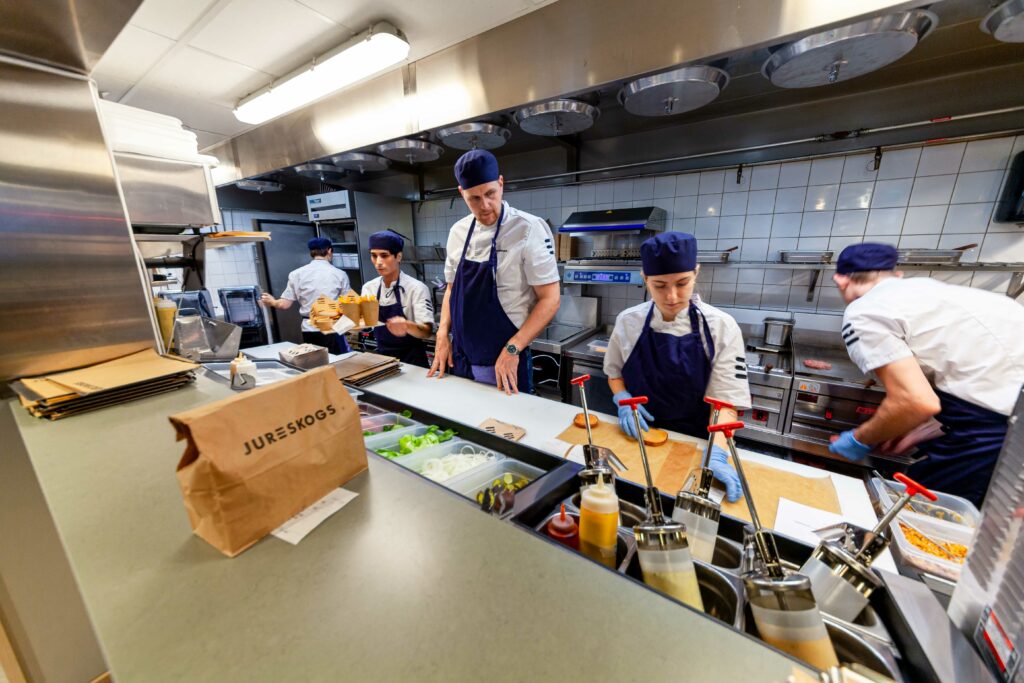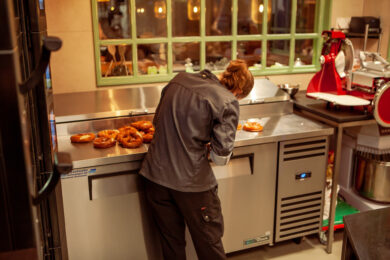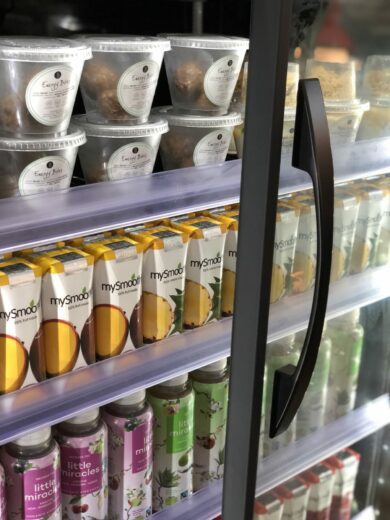Unemployment is down. Labour demand is up. And the effects of COVID-19 continue to weigh heavily on the national workforce. As the busy festive season fast approaches, Australia’s ongoing skills shortage is serving up plenty of challenges for commercial kitchen operators, large and small.
Earlier in the year, when the unemployment rate hit a 48-year low of just 3.4%, the hospitality sector was already struggling with nation-wide staff shortages. Things have arguably deteriorated even further since then, placing more pressure on governments and business owners to ‘get creative’.
According to Jeffrey Williams, CEO of hospitality industry jobs platform Barcats Australia, a significant number of additional hospitality workers is needed this festive season. “The hospitality industry in Australia is worth $71.3 billion, and right now, it is time to call in the reinforcements because if we are any chance of seeing hospitality soar this summer, we need support,” he said. “We need 200,000 new workers, which is three times the size of the entire Australian Defence Force.”
Extreme times, extreme measures
Some hospitality operators are going to amazing lengths to fill the gaps. Back in August, Channel 9 reported several Sydney restaurant owners were offering sign-on bonuses of up to $5,000 to attract the extra staff they need. While Simon Blacher, co-owner of Commune Group which operates a series of well-known establishments in Melbourne, hired more than 30 chefs at a Dubai jobs fair at a cost of almost $250,000, just to cover visas and processing fees. When asked why, Blacher explained: “We’re (hospitality) such a laborious industry and we can’t automate a lot of things, so coming out of COVID without the influx of overseas travellers and overseas skilled workers there’s definitely been a labour hole in the industry.”
Of course, not every hospitality business can go to such lengths to attract the workers they need. For the majority of commercial kitchen operators, this means the current resourcing challenges are likely to remain for some time yet. But it’s also worth remembering that with ‘Staff wanted’ signs a common sight in the windows of cafés and restaurants across the country, one of the most important things you can do is… hang to what you already have.

Hold on tight!
Given it’s so hard to find new staff, retaining your existing employees has never been so critical. More and more restaurants are now focussing on improving their staff training, whilst
also trying to provide a better workplace culture and greater focus on work-life balance. Whilst there’s no magic bullet, below are a few strategies that can help.
1. The better the fit, the more likely they’ll stay
When you’re short-staffed and stressed, it can be oh-so-tempting to quickly hire the first available applicants for your kitchen. But this can be a false economy. Training up staff only for them to leave after a short period of time – whether by your choice or theirs – is a big drain on your time and money. Taking a little longer during the hiring process to ensure a person is the right fit for your team can pay off in the long-term, both through better performance and longer tenure.
2. Make training a priority
Do your team members have the skills and tools they need to do their job as well as possible? Everyone wants to improve and learn – and employers who allow their staff to do it are far more likely to gain support and loyalty in return. Having a solid onboarding/training plan will help your new employees feel valued right from the beginning. While offering relevant skills training to your existing team members can help reinforce best practices and ensure they feel like an important part of your future plans.
3. Show you care about workplace culture
This one is pretty simple. Happier workplaces mean happier employees – and happier employees are far less likely to leave for somewhere else. Now more than ever, it’s worth thinking about your current workplace culture, and how you can make it even better. Does your team feel valued and heard? Do they enjoy coming to work? Are they empowered and comfortable voicing their ideas or concerns? How well do you currently recognise team members for doing a great job? Do you practise ‘random acts of kindness’? These are all important questions to ask, and the answers can really help to improve your retention rates.
4. Encourage opportunities for growth
Whenever senior roles come up, do you actively try to recruit from within? It could be a great opportunity for an existing staff member to ‘step up’ and grow their skills without having to leave your team. Promoting existing staff members lets you fill roles with people who already know your business and its customers. It also shows the rest of your team that you genuinely care about their development – reducing the need to look elsewhere when they want to progress their career.
Yes, staff turnover will always be part of running a commercial kitchen. But keeping some of these strategies in mind could really help when it comes to hiring and retaining team members. Right now, in such tight labour market it could make all the difference – especially in the lead-up to Christmas.
Looking to get your business ready for the festive season?
Contact us today.





